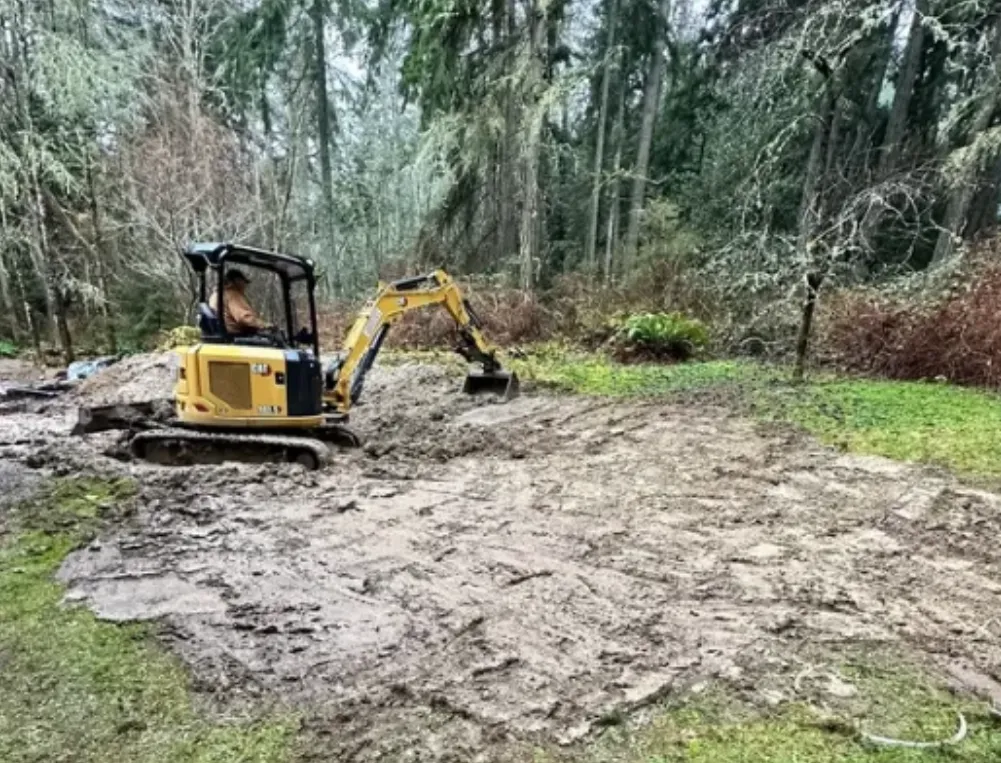Serving: Pierce, Kitsap, Mason and Thurston counties

The Best Time for Residential Excavation in Kitsap County | TH Excavation
The Best Time to Start Your Residential Excavation Project in Kitsap County, (And Why)
Introduction: Timing is Everything in Residential Excavation
When it comes to digging up your yard, timing can be a bigger factor than you might think. You might be feeling overwhelmed—there’s already a lot to juggle with home projects. You’ve heard horror stories of delays, unexpected costs, and muddy messes that seem to drag on forever. You might be wondering: Is now really the right time to dig? That’s a valid concern, especially when you live in Kitsap County, where the weather can turn on you faster than you’d expect.
At TH Excavation, we understand. We’ve seen firsthand how a poorly timed excavation project can become a homeowner’s worst nightmare. We’re here to help you get it right the first time, without unnecessary stress. So, let’s explore how to pinpoint the best time to break ground on your residential excavation near Kitsap County, WA, and why it matters.
Factors that Influence the Best Time for Excavation
Weather Considerations in Kitsap County
The Pacific Northwest is known for its rain, and that’s especially true in Kitsap County. The region gets wet and stays that way for most of the year, which can affect excavation projects in more ways than one. Heavy rains can make the soil slippery and muddy, leading to equipment getting stuck, safety risks, and possible erosion. The drier summer months might be more ideal, but they come with their own challenges, like high temperatures that can harden the soil.
Soil Conditions and Their Impact
Different soil types in Kitsap County, react differently to excavation. For example:
Clay-rich soil becomes sticky and tough to work with during the rainy season.
Sandy soil can drain well but might require stabilization measures in drier months.
Loamy soil, often found in gardens, can be the easiest to excavate, depending on moisture levels.
Understanding your soil type and how it interacts with the weather is crucial to deciding when to dig.
Project Type: New Builds vs. Renovations
Not all excavation projects are the same. A full-scale excavation for a new home build differs significantly from a smaller backyard project like digging for a pool or installing a new septic system. Larger projects often require more lead time, permits, and coordination, making timing even more critical.
Seasonal Breakdown: When to Start Your Excavation Project
Spring: The Good, the Bad, and the Muddy
Spring is when many homeowners feel ready to tackle outdoor projects. The days start to get longer, and there’s a feeling of renewal in the air. However, spring also brings unpredictable weather. While it’s warm enough to dig, rain can create delays. Here’s the rundown:
Pros: Moderate temperatures, softer soil.
Cons: Frequent rain, potential for muddy conditions.
Spring can be a good choice if you’re patient and can tolerate potential slowdowns. This is also the best time to line up permits and utilities, as agencies often have quicker processing times after winter lulls.
Summer: Why It's a Prime Season for Digging
For most Kitsap County homeowners, summer is prime excavation time. Here’s why:
Pros: Dry weather, longer daylight hours, better soil stability.
Cons: Hard, compacted soil can make digging slower.
Despite the heat, the consistent dry weather reduces unexpected delays, making summer the most reliable time for larger projects. Just be prepared for increased demand, as many homeowners aim for summer starts, and contractors may have tighter schedules.
Fall: Balancing Speed with Weather Shifts
Fall is often underestimated as an excavation season, but it has a lot to offer:
Pros: Cooler temperatures, softer soil as rain begins to return.
Cons: Shorter days, risk of early rain affecting schedules.
If you’re aiming for a quicker project with fewer weather-related surprises, early fall can be a solid choice. You’ll have enough dry days to complete work without battling the peak summer heat or the unpredictability of spring rains.
Winter: Pros and Cons of Cold-Weather Excavation
Winter might seem like the least desirable time to dig, but it has its advantages:
Pros: Lower demand, more contractor availability.
Cons: Frozen or overly saturated soil, shorter workdays.
Winter projects often come with reduced rates due to lower demand, making it appealing for smaller jobs that need to be completed quickly. However, frozen ground can be tough to break through, and rain-soaked soil can slow down progress.
How to Plan Ahead for Your Excavation Project
Preparing Your Property: Permits, Utilities, and Surveys
No matter the season, planning ahead is essential. Start by securing permits, marking utilities, and getting a thorough survey of your land. Knowing what lies underground—like utility lines, old pipes, or natural obstacles—will prevent unexpected delays and costs.
Building a Realistic Timeline
Consider creating a timeline that factors in seasonal delays. For instance, if you’re planning to start in spring, aim for early preparation in winter. This will give you a head start, making it easier to pivot if you encounter bad weather or other delays.
Budgeting Wisely for Seasonal Impacts
Budgeting isn’t just about materials and labor—it’s about timing, too. Excavation costs can vary depending on the time of year, as demand and soil conditions fluctuate. Be sure to set aside extra funds for potential weather-related costs, such as extra days needed to let the ground dry out or more labor hours due to difficult digging conditions.
The Importance of Choosing the Right Excavation Partner
Why Experience Matters in Local Conditions
In Kitsap County, and surrounding counties, understanding local conditions isn’t just a bonus—it’s a necessity. An experienced local excavator knows when to expect rain, how the soil reacts to weather changes, and what permits are required for specific areas. At TH Excavation, we’ve been digging in these counties for years, adapting our approach to fit your needs and the unique challenges of this region.
Customization: Adapting to Your Needs and Budget
We’re not the biggest excavation firm, but we focus on customizing our services to suit you. Whether it’s a big job or a quick trenching project, we tailor our approach to fit your budget, timeline, and goals. You shouldn’t have to settle for a one-size-fits-all solution.
Conclusion: Start Your Excavation Project with Confidence
Choosing the best time to start your residential excavation project in Kitsap County, depends on weather, soil conditions, and your specific needs. By understanding the advantages and challenges of each season, preparing ahead, and partnering with experienced pros like us, you can make the right call without the stress.
If you’re ready to dig into your next project or have questions about when to start, TH Excavation is here to help you navigate the process with ease. Let’s make your excavation project a success from the start!
